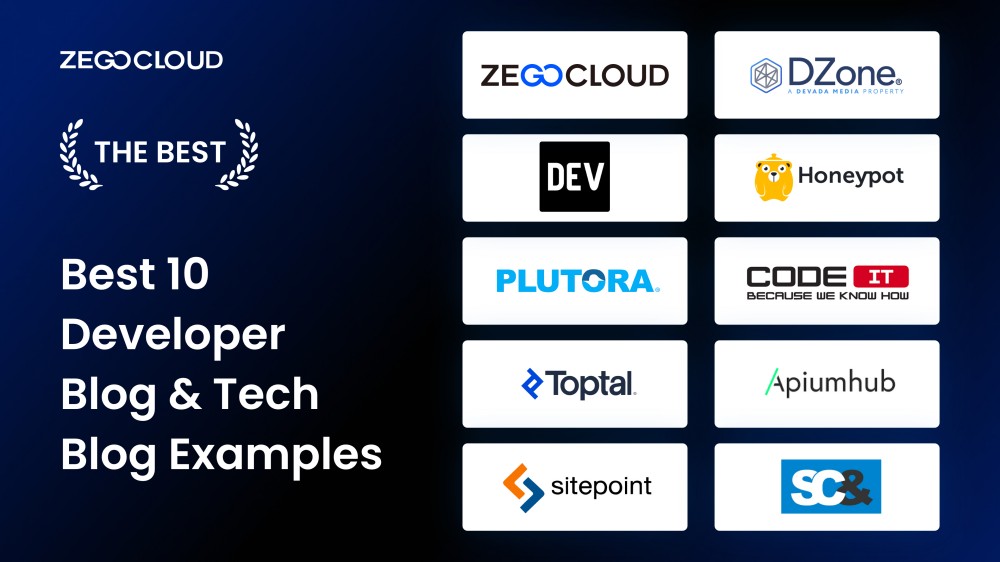Discover the Best tech blog for the most up to date Trends and Technologies in Technology
Discover the Best tech blog for the most up to date Trends and Technologies in Technology
Blog Article
Just How Blockchain Innovation Is Revolutionizing Data Security
Blockchain modern technology is basically changing the landscape of data protection by presenting a decentralized framework that promises boosted openness and durability. Unlike traditional systems, which count on central data databases, blockchain distributes data throughout a network, decreasing susceptabilities and single factors of failure. The use of innovative cryptographic strategies makes sure that data continues to be tamper-proof, cultivating trust amongst individuals and stakeholders. As industries rapidly adapt to this modern technology, inquiries develop concerning its broader influence and potential difficulties. What ramifications does this change hold for future data security techniques and regulatory frameworks? The solutions may stun you (Best tech blog).
The Fundamentals of Blockchain
Blockchain technology, a revolutionary concept in digital data monitoring, fundamentally transforms how information is kept and protected. At its core, a blockchain is a distributed ledger that videotapes purchases throughout a network of computer systems, making certain transparency and immutability.
Key to recognizing blockchain is the hashing procedure, which encrypts purchase information right into an one-of-a-kind alphanumeric code. This cryptographic function makes sure that any change in the purchase information leads to a completely various hash, thereby guarding against tampering. The consensus device, an additional critical component, confirms and validates brand-new transactions with a network of nodes, consequently getting rid of the demand for a central authority.
Furthermore, blockchain's append-only structure ensures that information, as soon as added, can not be removed or changed. This characteristic assurances a verifiable and permanent record of purchases, fostering trust amongst individuals. As an outcome, blockchain provides a robust structure for information stability, supplying markets a reputable method for monitoring and managing digital details in a safe, transparent way.
Decentralization and Safety
Decentralization, a core concept of blockchain innovation, considerably improves information safety by distributing control throughout a network as opposed to counting on a single, centralized entity. This circulation alleviates the threat of solitary factors of failing, which prevail in standard centralized systems. By dispersing data across numerous nodes, blockchain makes sure that even if one node is compromised, the whole network continues to be protected. This redundancy not only fortifies the honesty of the information yet also raises its strength to cyberattacks and system failings.

Moreover, decentralization encourages customers with better control over their data. Each participant in the network has access to the whole blockchain, allowing them to verify and audit deals separately. This transparency promotes trust among individuals, as they do not need to depend on a main authority to make certain information integrity. In general, decentralization is important in improving data safety and security in blockchain networks.

Cryptographic Methods
At the heart of blockchain modern technology, cryptographic techniques play a crucial role in securing information, ensuring both privacy and integrity. These techniques are foundational to the blockchain's capability to firmly tape-record deals in a decentralized manner. Cryptography in blockchain uses a mix of symmetrical and asymmetric formulas to encrypt information, making it accessible only to authorized celebrations - Best tech blog. Public and personal key sets are central to this procedure, enabling secure authentication and identity verification without disclosing delicate information.
Hash functions are one more critical component, transforming input data right into a fixed-size string of characters, effectively developing a distinct digital finger print for each and every block. This makes certain that any type of attempt to alter the data will cause a totally various hash, hence preserving the immutability of the blockchain. Digital trademarks confirm the credibility and integrity of purchases, giving a layer of non-repudiation.
The decentralized nature of blockchain, combined with robust cryptographic strategies, removes the demand for intermediaries, minimizing possible vulnerabilities. As blockchain technology evolves, improvements in cryptography such as zero-knowledge proofs and homomorphic security remain to improve security steps, even more fortifying information protection in this cutting edge digital journal system.
Use Cases Across Industries

In the healthcare market, blockchain ensures the secure storage and sharing of patient records, promoting interoperability while protecting delicate data from unauthorized access. This technology encourages clients with control over their case history and assists in seamless control amongst doctor.
Supply chain administration benefits substantially from blockchain's immutable journal, which guarantees traceability and credibility of products from beginning to consumer. By enhancing openness, blockchain aids alleviate issues such as counterfeiting and underhanded sourcing.
In addition, blockchain's decentralized nature is reshaping the power industry by making it possible for peer-to-peer power trading, where customers can acquire and offer excess renewable resource straight. This cultivates an extra lasting and effective power ecological community.
In the world of copyright, blockchain gives a tamper-proof system for designers to register and secure their jobs, guaranteeing rightful attribution and fair settlement. These diverse usage cases underscore blockchain's function as an essential force in redefining information safety throughout sectors.
Future of Information Defense
As we look to the future of data defense, blockchain technology is positioned to play a critical role in securing electronic details. With its decentralized and unalterable attributes, blockchain provides a my latest blog post robust framework for safeguarding sensitive data versus unapproved accessibility and cyber threats. This innovation guarantees that once information is recorded, it is nearly impossible to alter without discovery, thus supplying a substantial benefit over typical data storage space techniques.
The integration of blockchain with various other sophisticated innovations, such as expert system and the Net of Things (IoT), is expected to boost information defense methods additionally. By leveraging wise contracts, organizations can automate and best site enforce safety protocols, reducing human error and raising efficiency. In addition, blockchain's capability to give traceable and transparent deals will certainly boost trust and liability in information management techniques.
As regulative landscapes progress, blockchain's compliance-friendly nature will certainly become significantly appropriate. It can help companies meet rigorous data security regulations, such as the General Information Defense Policy (GDPR) and the California Customer Privacy Act (CCPA), by offering proven records of information handling activities. Inevitably, blockchain's special characteristics setting it as a transformative device in the recurring quest to secure the digital globe against ever-evolving cyber threats.
Final Thought
Blockchain technology stands for a paradigm shift in data safety and security by leveraging decentralization and cryptographic methods to boost openness, count on, and data honesty. As cyber dangers develop, blockchain emerges as a crucial device for durable information defense throughout numerous markets.
Blockchain technology is essentially modifying the landscape of data protection by presenting a decentralized framework that assures improved openness and resilience. Unlike standard systems, which depend on central information databases, blockchain disperses information throughout a network, lessening vulnerabilities and solitary factors of failing.Decentralization, a core concept of blockchain innovation, substantially boosts information safety and security by distributing control throughout a network rather than counting on a singular, centralized entity.At the heart of blockchain technology, cryptographic techniques play a crucial duty in safeguarding data, guaranteeing both discretion and integrity.Blockchain technology stands for a standard shift in information security by leveraging decentralization and cryptographic strategies to boost transparency, depend on, and information stability.
Report this page